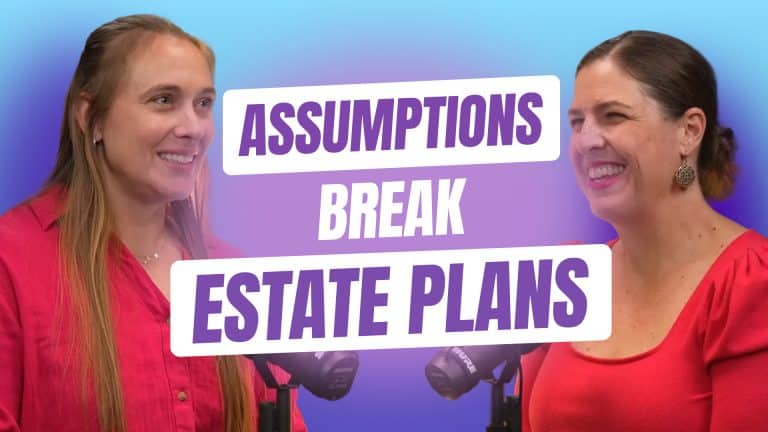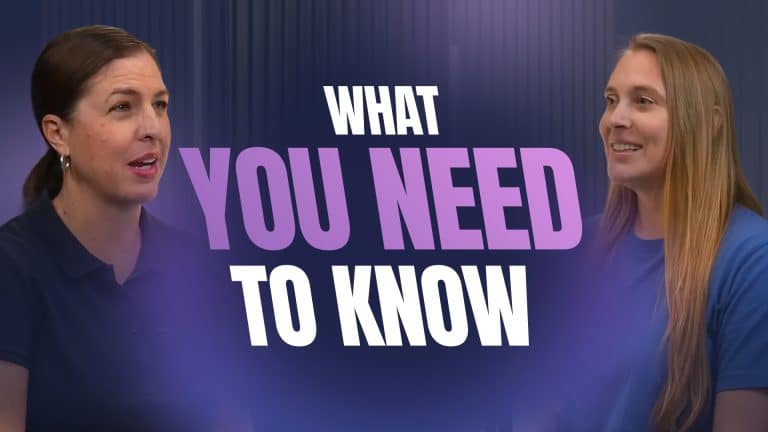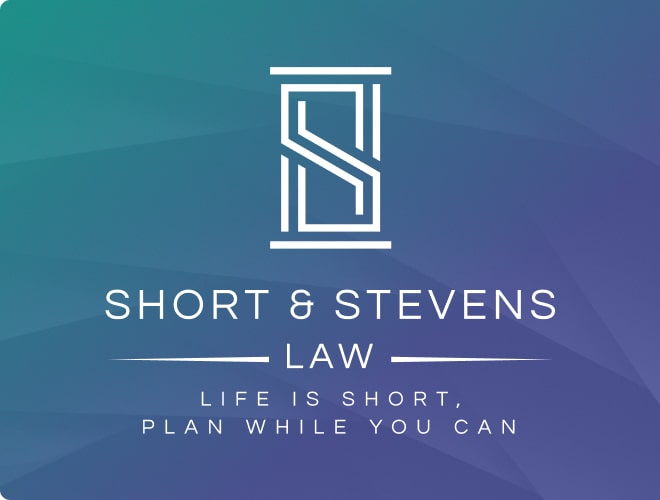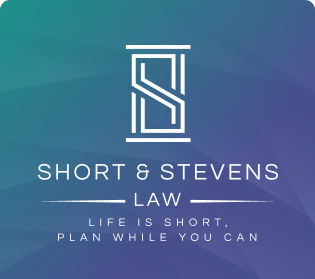Most people think a will keeps their assets out of probate court. It doesn’t. A will is actually a guaranteed ticket into probate, where your estate gets reduced by court costs and attorney fees while your family waits months for access to what you left them.
There are four ways to avoid probate. Only one gives you complete control over how, when, and to whom your assets go after you’re gone.
Method 1: Own Nothing (Not Realistic for Most People)
If you don’t own anything and don’t own anyone anything, there’s nothing to probate. No assets means no probate court.
That’s technically true but completely impractical for most people. Most people have, at least, a bank account. Many people own cars, homes, retirement accounts, or other property that they still want to control. You can’t exactly give everything away and live with nothing just to avoid probate.
This method isn’t, usually, a real solution for anyone doing actual estate planning, it is usually used in rare circumstances.
Method 2: Co-Ownership (A Temporary Fix That Delays the Problem)
Joint ownership with another person can bypass probate when the first owner dies. The surviving co-owner automatically keeps the assets without court involvement.
Here’s how it works: You and another person both own an asset. When you die, the other person is still holding those assets. Since someone’s still alive and owns them, probate doesn’t happen.
The problem shows up when the second person dies. Now there’s no remaining co-owner, and the assets fall straight into probate court.
The Limitations You Need to Know
Co-ownership has specific legal and tax implications you should discuss with an attorney. Different types of joint ownership create different outcomes.
This approach works as an interim solution but not a final one. You’re delaying probate, not eliminating it. The second death triggers everything you were trying to avoid.
Joint ownership can also create problems during life. The co-owner has immediate access to the assets. If you co-own a bank account with your daughter and she gets divorced, that account could become part of her marital assets. If she gets sued, creditors might go after it. You lose sole control the moment you add a co-owner.
Method 3: Beneficiary Designations (Good Until They’re Not)
Naming a beneficiary on your assets keeps them out of probate as long as that beneficiary is alive when you die.
You maintain full control of your assets during your lifetime. After you pass away, the named beneficiary receives them directly without going through court. This works well for bank accounts, retirement accounts, and life insurance policies in many cases.
Many people stop here and think they’re covered. They’re not.
Where Beneficiary Designations Fall Short
The person you name as beneficiary might die before you or they might die at the same time as you in an accident. If that happens, those assets go straight to probate because there’s no living beneficiary to receive them.
You also can’t add any conditions or instructions with a beneficiary designation. You can’t specify that your 25-year-old son gets the money in three installments over six years instead of all at once. You can’t say the funds should be used for education or healthcare first. You can’t protect the money from his creditors or a divorce.
The beneficiary gets everything immediately with no restrictions. They can spend it however they want the day after you die.
You have no control over the timing, method, or conditions of the transfer. If your beneficiary is irresponsible with money, dealing with addiction, going through a divorce, or being sued, that money becomes vulnerable the second they receive it.
Beneficiary designations work for simple situations. They don’t work when you need any level of asset protection or control over distribution.
Method 4: A Revocable Family Trust (The Comprehensive Solution)
A revocable family trust is the only method that keeps assets out of probate while giving you complete control during your life and detailed instructions for after your death.
Here’s what makes it different from everything else.
How a Revocable Trust Actually Works
When you create a revocable trust, you transfer your assets into it. All of them (with a few possible exceptions) – your house, bank accounts, investments, and other property get retitled in the name of the trust.
You serve as the grantor (the person who created the trust) and the trustee (the person who manages it). You have complete control. You decide what goes in and out, how it’s invested, when to sell or buy assets, and everything else. Nothing changes about how you manage your money day to day.
The word “revocable” means you can change or cancel the trust anytime. You’re not locked into anything. If you want to take assets out, change beneficiaries, or dissolve the whole thing, you can do that whenever you want.
What Happens After You Die
When you pass away, your successor trustee takes over. This is someone you named in the trust document when you created it.
The successor trustee follows the instructions you left. Those instructions specify exactly who gets what, when they get it, and how they get it.
You can name multiple beneficiaries: your kids, friends, charities, or anyone else. You can give them equal shares or unequal shares. You can put conditions on distributions. You can say that your daughter gets her share in three payments over five years, or that your son only gets distributions for education and healthcare until he turns 30.
If one of your beneficiaries dies before you, the trust instructions say what happens to their share. Maybe it goes to their kids. Maybe it gets split among the surviving beneficiaries. You decide all of this in advance.
The successor trustee distributes everything according to your instructions. The beneficiaries receive their shares. The assets never go through probate court because the trust owned them, not you personally, when you died.
The Real Benefits
Your beneficiaries get what you left them without waiting for probate. No court costs eat into the estate. No attorney fees reduce what they receive. No six-to-eighteen month delays while the court processes paperwork. And the entire process is private, not public, so your family’s affairs remain confidential.
You keep full control during your life and set detailed terms for after your death. The trust can protect assets from beneficiaries’ creditors, divorces, or poor spending habits. You can plan for what happens if a beneficiary has special needs or addiction issues.
A trust costs more to set up than a simple will. You pay attorney fees upfront to create it and transfer your assets into it. But that cost is far less than probate costs later, and your family avoids months of court involvement while they’re grieving.
Why Your Will Guarantees Probate (Not Avoids It)
People buy wills thinking they’ve handled their estate planning. They haven’t avoided probate. They’ve just set directions for where their assets should go after they enter probate.
Here’s the actual process with a will.
You die with assets in your name. The will says where those assets should go. But the will doesn’t have authority by itself. It has to be validated by the probate court.
Your assets go into probate court. The court verifies the will is legitimate, appoints an executor, and supervises the distribution process. This takes months. Your family pays court costs and attorney fees.
After probate finishes, the court allows your executor to distribute what’s left to your beneficiaries. What’s left is less than what you had because court costs and attorney fees came out of it first.
Your family just spent six to twelve months dealing with courts and attorneys while grieving your death. They received less money than you intended to leave them. And all of this was guaranteed the moment you used a will as your primary estate planning document.
A Will Is Directions Through Probate, Not Around It
A will tells the probate court where your assets should go. It doesn’t give your assets permission to bypass the court. Every asset titled in your personal name at death goes through probate if a will controls it.
The court has to validate that the will is real, that it’s your most recent will, that you were competent when you signed it, and that no one coerced you. Then the court supervises your executor to make sure they follow the will’s instructions correctly.
This is expensive and slow. Probate costs typically run 3-7% of the estate value in attorney fees and court costs. On a $500,000 estate, that’s $15,000 to $35,000 that doesn’t go to your beneficiaries.
Which Method Should You Use?
Most people need a trust-based plan if they own significant assets.
If you only have a small bank account and no other assets, beneficiary designations might be enough. Just name a primary and contingent beneficiary on each account.
If you own a home, have retirement accounts, possess investment accounts, or have more than $50,000 in total assets, a revocable trust makes sense. The upfront cost is less than probate costs later, and your family avoids court involvement entirely.
Co-ownership works in limited situations, usually between spouses. But it’s not a complete solution on its own. You still need a plan for what happens when the second spouse dies.
Don’t rely on a will as your primary estate plan if you want to avoid probate. Use a trust instead, and include a simple will as a backup to catch any assets you forgot to transfer into the trust.
Talk to an Estate Planning Attorney
Each of these methods has specific legal and tax implications for your situation. An estate planning attorney can review your assets, family situation, and goals to recommend the right approach.
Co-ownership might trigger gift tax issues. Beneficiary designations might create problems if you don’t coordinate them with your overall plan. Trusts need to be funded correctly or they don’t work.
An attorney can set up a trust properly, help you retitle assets into it, and make sure your beneficiary designations align with your trust instructions.
The goal is to keep your assets out of probate court so your family receives what you intended to leave them without court involvement, delays, or unnecessary costs.
Key Takeaways
- A will does not avoid probate – it guarantees your assets go through probate court where fees and delays reduce what your beneficiaries receive.
- Beneficiary designations work until they don’t – they’re fine for simple situations but offer no control over how or when assets are distributed and fail if the beneficiary pre- deceases you.
- Co-ownership delays probate but doesn’t eliminate it – the first death avoids court but the second death triggers probate, and you lose complete control over assets during life.
- A revocable family trust is the only complete solution – you keep full control during life, avoid probate entirely at death, and set detailed instructions for exactly how and when beneficiaries receive assets.
- Probate costs reduce your estate by 3-7% on average – that’s $15,000 to $35,000 on a $500,000 estate that doesn’t go to your family.
- Trusts cost more upfront but far less than probate later – the attorney fees to create and fund a trust are less than the court costs and attorney fees your family pays during probate.
- Consult an estate planning attorney before implementing any method – each approach has specific legal and tax implications that depend on your assets, family situation, and state laws.
Frequently Asked Questions
What’s the main difference between a will and a trust?
A will directs where your assets go after they pass through probate court. A trust holds your assets so they never enter probate at all. Wills guarantee probate involvement, while properly funded trusts bypass it completely.
Can I change my revocable trust after I create it?
Yes. The word “revocable” means you can modify, amend, or completely dissolve the trust anytime during your life so long as you have capacity. You can add or remove assets, change beneficiaries, adjust distribution instructions, or name a different successor trustee whenever you want.
Do I lose control of my assets if I put them in a trust?
No. When you serve as trustee of your own revocable trust, you maintain complete control over all trust assets. You can buy, sell, invest, spend, or transfer assets exactly as you did before. Nothing changes about day-to-day management.
What happens if I forget to put an asset in my trust?
Any asset not titled in the trust’s name at your death will go through probate unless it has a beneficiary designation or is jointly owned. This is why estate planning attorneys recommend a “pour-over will” as backup, which directs any forgotten assets into the trust through probate (though this defeats some of the purpose).
How much does probate cost compared to creating a trust?
Probate typically costs 3-7% of the estate value in combined court costs and attorney fees. A $500,000 estate might pay $15,000-$35,000 in probate costs. Creating a trust usually costs $2,000-$5,000 in attorney fees upfront, saving significant money for your beneficiaries later.
Can I name multiple beneficiaries in a trust with different distribution rules for each?
Yes. This is one of the trust’s main advantages over beneficiary designations. You can specify that one beneficiary gets a lump sum, another receives distributions over time, and a third only gets money for specific purposes like education or healthcare.
What’s a successor trustee and who should I choose?
A successor trustee is the person who manages and distributes your trust assets after you die. Choose someone who is financially responsible, trustworthy, organized, and willing to serve. Many people choose an adult child, trusted friend, or professional fiduciary.
Do beneficiary designations override what’s in my trust?
Yes. Beneficiary designations on retirement accounts, life insurance policies, and bank accounts transfer directly to the named beneficiary regardless of what your trust says. You need to coordinate beneficiary designations with your trust plan or name the trust as beneficiary.
How long does probate take?
Probate typically takes six to twelve months for a straightforward estate, though complicated estates or disputes can extend this to two years or more. During this time, assets are usually frozen and beneficiaries can’t access them.
Can I avoid probate by just adding my kids as joint owners on my accounts?
You can, but this creates risks. Your children have immediate access to those assets, which exposes the money to their creditors, divorces, or lawsuits. You also lose sole control over the accounts, and the money goes only to the joint owners instead of being distributed according to your wishes among all your children.




